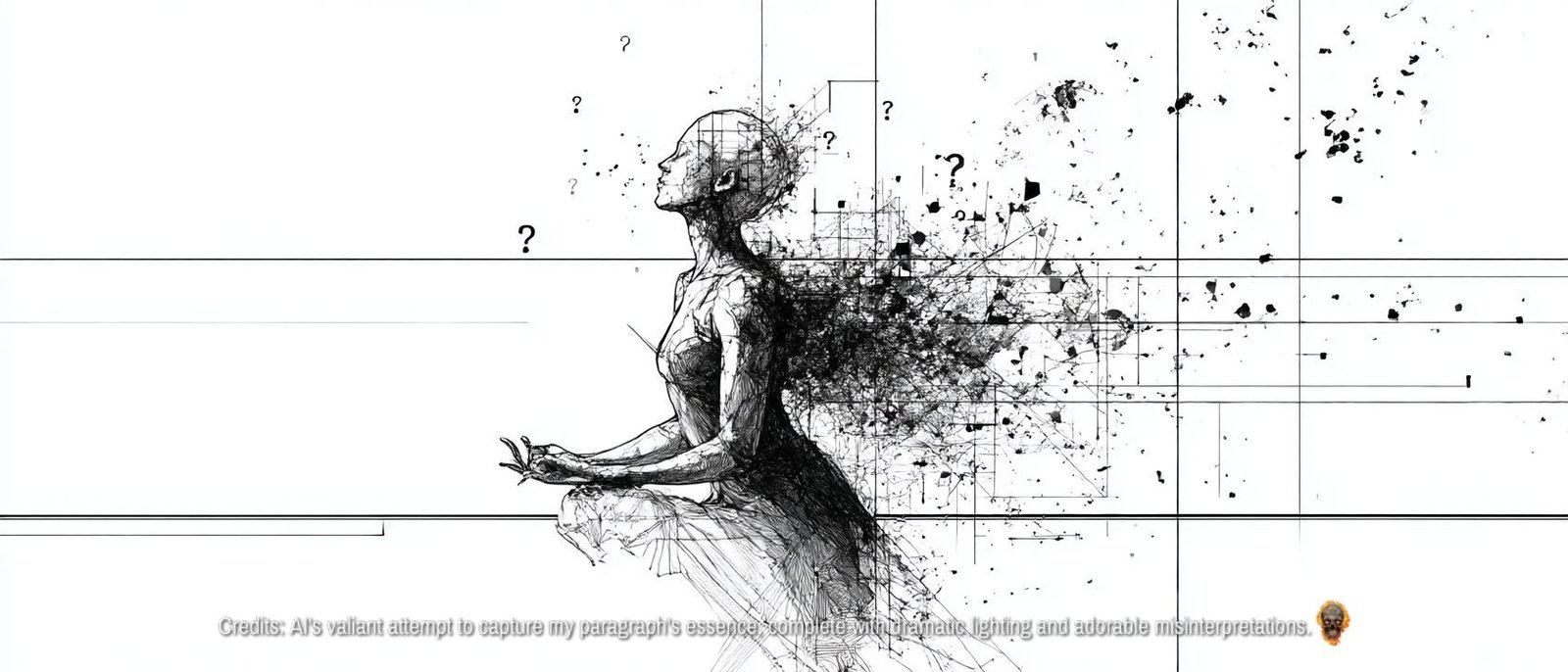7 Reasons Why You Are Sold Spiritual Candy and Kept Asleep
The awakening industry is worth billions. [1]
But where are all the awakened people? The spiritual marketplace has exploded into a $4 billion enterprise, yet seekers remain seekers, teachers remain teachers, and the fundamental delusion persists with remarkable consistency.
Maya has pulled off the perfect crime: convincing an entire generation that awakening should feel good, that truth can be packaged, and that the very thing keeping them asleep is actually the path to freedom. The subscription model of spiritual seeking generates more revenue than genuine transformation ever could.
Seven systemic reasons explain why the industry perpetuates the problem it claims to solve.
The house always wins because the house is the ego itself…
…and the ego never bets against itself.
#1 The Comfort Imperative
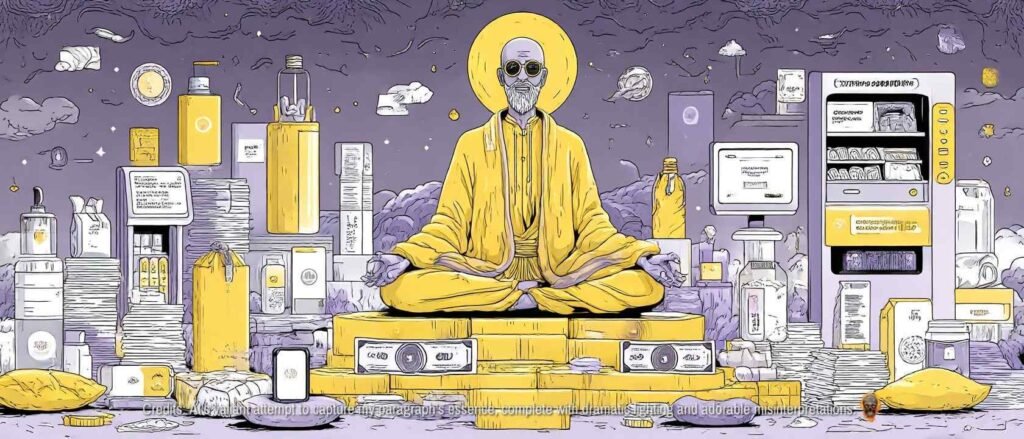
Teachers must offer something people want or they’re just talking to empty rooms.
The brutal economics of spiritual teaching demand customer satisfaction, and nothing satisfies like the promise of awakening without the inconvenience of ego death. Headspace generated $195 million in 2023 by selling meditation as a lifestyle enhancement, not as a tool for self-annihilation. [2]
The business model is brilliant: package the most radical teaching on Earth as a wellness product, complete with subscription renewals and premium features. Academic research confirms what any honest observer already knows – modern non-duality suffers from “inconsistent conceptualizations” because consistency would kill the cash flow. [3] The secret isn’t in the teaching; it’s in the packaging of nothingness as something worth buying.
Teachers become drug dealers, and students become addicts, both convinced they’re engaged in spiritual work rather than spiritual commerce. The comfort imperative transforms awakening into a consumer experience…
…where the customer is always right, even when they’re wrong.
#2 The Love and Meditation Deception

Love and meditation are not roads to awakening.
They are the offramps we so desperately seek, the comfortable alternatives to the highway that leads nowhere anyone wants to go. Scientific research reveals the devastating truth: unity experiences and ego dissolution are “only moderately correlated,” meaning you can feel connected to the universe while your ego remains perfectly intact. [4]
The neuroscience is clear – meditation strengthens certain brain networks while leaving the fundamental sense of self untouched. [5] Traditional Advaita emphasized “neti neti” – not this, not this – a systematic negation that offers no comfort, no bliss, no spiritual highs to chase. Modern teachers have flipped the script, turning “not this” into “yes, this,” transforming discrimination into accumulation. The love-and-light crowd has weaponized positive emotions against awakening itself, creating a spiritual materialism so sophisticated that seekers mistake their addiction for progress.
When teachers promote love and meditation as awakening tools, they’re either ignorant or complicit in the greatest spiritual deception ever perpetrated…
…and ignorance is no longer an excuse.
#3 The Teacher-Student Codependency
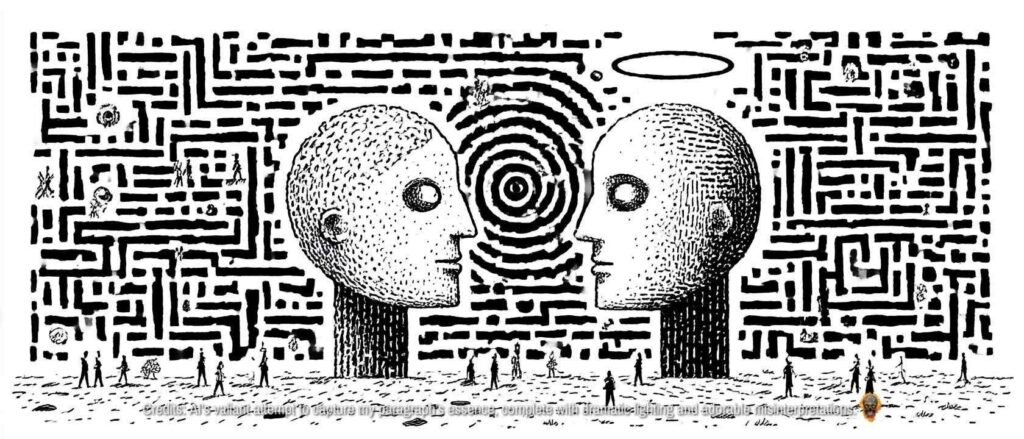
Awakened students are bad for business.
The subscription model of spiritual teaching depends on perpetual seeking, not permanent resolution. Teachers unconsciously need students to remain students, creating a codependent relationship that masquerades as spiritual guidance.
The economics are undeniable: Headspace maintains 2.8 million paying subscribers precisely because meditation doesn’t end seeking – it manages it. [6] The retreat industry, course certifications, and ongoing mentorship programs all depend on the fundamental assumption that awakening is a process requiring professional supervision. Academic research on authority dynamics reveals how spiritual teachers develop unconscious investments in maintaining their teaching role, even when genuine awakening would eliminate the need for teachers entirely. [7] The phenomenon of “advanced seekers” who seek for decades isn’t a bug in the system – it’s a feature.
These long-term students become walking advertisements for the teacher’s effectiveness while simultaneously proving the method’s failure. The teacher-student relationship becomes a mutual delusion where both parties benefit from avoiding the very outcome they claim to pursue…
…because success would put them both out of business.
#4 The Experience Addiction
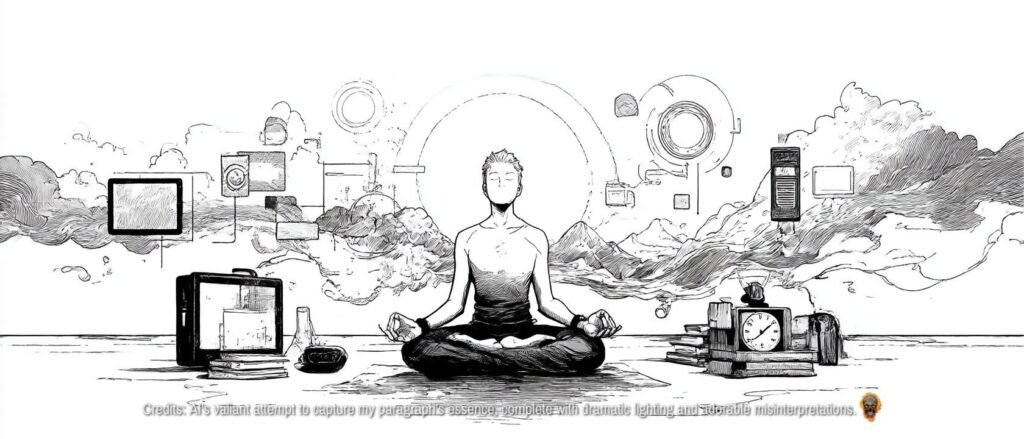
The spiritual experience industry has turned awakening into entertainment.
Academic research documents how “devices and technologies have even been developed, such as binaural beat audio recordings” designed to induce altered states on demand. [8] The confusion between spiritual experiences and awakening has created a marketplace where peak states are sold like drugs, complete with tolerance, withdrawal, and the need for increasingly intense doses.
Scientific studies on spontaneous spiritual awakenings reveal that genuine transformation often occurs without any special techniques, technologies, or teacher interventions. [9] Yet the experience industry continues to proliferate because experiences can be packaged, scheduled, and monetized in ways that authentic awakening cannot. The integration myth compounds the problem by suggesting that temporary states need to be made permanent through additional work, creating an endless cycle of seeking disguised as spiritual development.
Retreat centers become spiritual casinos where seekers chase the next high, convinced that the right combination of breathwork, meditation, and group processing will finally deliver the jackpot. The house edge ensures that seekers always leave wanting more…
…because the experience of seeking has become more addictive than the goal itself.
#5 The Gradual Path Illusion
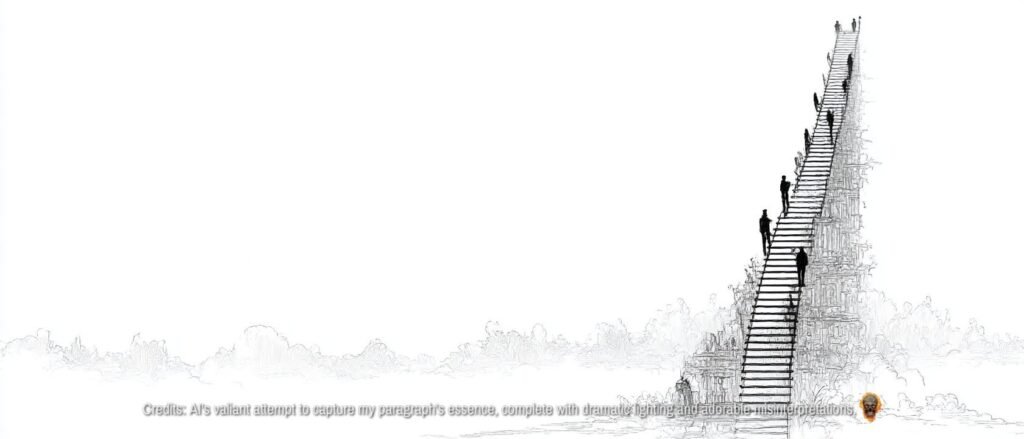
Awakening is not a process.
It’s entirely one of destruction, not gradual development, yet the spiritual marketplace has built entire curricula around the fiction of progressive enlightenment. The course industry generates massive revenue by selling stages, levels, and developmental models that keep seekers climbing an imaginary ladder toward an impossible destination.
Academic research on sudden versus gradual awakening models reveals the fundamental contradiction: genuine awakening involves the dissolution of the very entity that would progress through stages. [10] The ego cannot become enlightened any more than darkness can become light – one simply reveals the absence of the other. Yet teachers continue to market “becoming enlightened” because the alternative – recognizing that there’s no one to become anything – would eliminate their entire business model.
The development delusion transforms awakening into a skill to be acquired rather than an illusion to be abandoned. Spiritual development is an oxymoron, like saying “becoming nothing” or “achieving non-existence.” The gradual path keeps seekers perpetually approaching but never arriving at a destination that doesn’t exist for someone who isn’t there…
…which is why the journey never ends and the payments never stop.
#6 The Community Comfort Zone
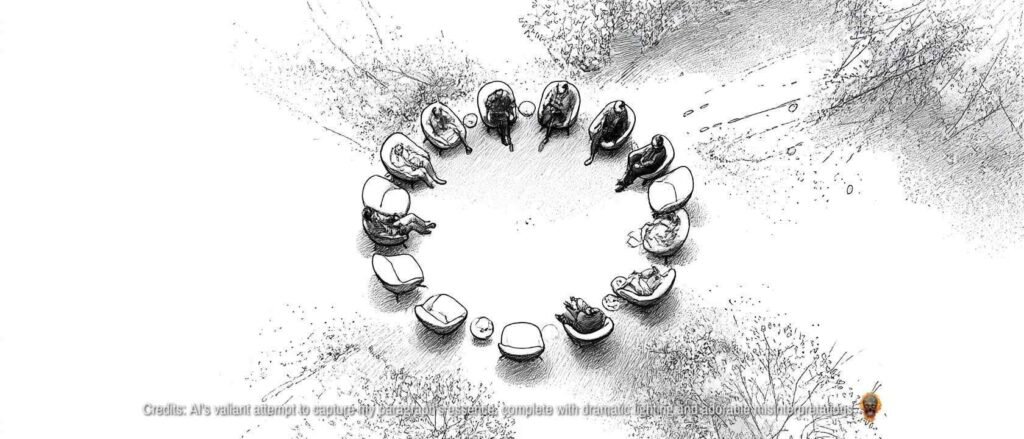
Picture this: Sarah, a dedicated seeker, finds her tribe.
Fifteen years of satsangs, retreats, and online forums where everyone speaks the same language of awakening. She’s surrounded by people who understand her journey, validate her experiences, and share her spiritual vocabulary. It’s beautiful, supportive, and completely toxic.
The spiritual community has become the ultimate comfort zone, a place where seekers can feel special without actually being different. These communities function as echo chambers where the same concepts circulate endlessly, creating the illusion of depth through repetition rather than penetration. Research on group dynamics reveals how spiritual communities often reinforce identity rather than dissolve it, creating “spiritual egos” that are more sophisticated but equally persistent as their secular counterparts. [11]
Sarah’s community celebrates her insights, honors her process, and encourages her seeking. What they don’t do is challenge the fundamental assumption that there’s someone there to seek. The group becomes a mutual admiration society where everyone agrees that awakening is wonderful, important, and just around the corner for all of them.
The community comfort zone transforms awakening into a social activity, complete with hierarchies, politics, and the subtle competition of who’s more awakened. Sarah feels at home in her seeking…
…which is exactly why she’ll never leave it.
#7 The Conceptual Proliferation

Meet Bryan, a philosophy professor turned spiritual seeker.
His bookshelf groans under the weight of non-duality texts. Nisargadatta, Ramana, Adyashanti, Rupert Spira – he’s read them all, cross-referenced their teachings, and developed a sophisticated understanding of awakening that would impress any spiritual scholar. He can discourse eloquently on awareness, presence, and the nature of consciousness.
Bryan has become a walking encyclopedia of awakening concepts, and that’s precisely his problem.
Academic research confirms what any honest observer already knows: the non-duality field suffers from “conflicting descriptions indicating that the actual experience may not live up to the superlative descriptions found in historical texts.” [12] The proliferation of concepts, models, and frameworks has created a spiritual Tower of Babel where everyone speaks a different dialect of the same fundamental confusion.
Bryan’s mind has become a museum of awakening artifacts, each concept carefully cataloged and preserved. He knows what awakening should look like, feel like, and sound like according to dozens of different teachers. What he doesn’t know is that all this knowing is the very thing preventing the unknowing that awakening actually requires.
The conceptual proliferation turns awakening into an intellectual exercise where understanding replaces being. Bryan thinks his way toward a destination that can only be reached by abandoning thought itself. His sophisticated spiritual vocabulary becomes a prison of words…
…where the key is throwing away the dictionary.
The Unwelcome Truth
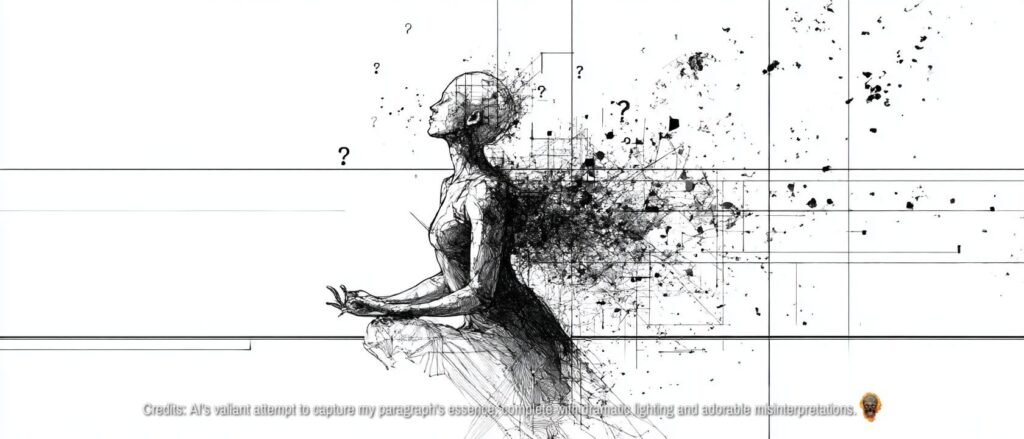
So, what’s the takeaway?
Don’t seek awakening for comfort. Seek it for the right questions.
Questions that will tear apart everything you think you know about spirituality, teachers, and yourself. The spiritual candy industry thrives because it offers the sweetness of awakening without the bitterness of ego death. It promises transformation while preserving the transformer, enlightenment while maintaining the seeker, freedom while keeping the prisoner intact.
Remember, if you’re looking for spiritual comfort, stick to the meditation apps and weekend retreats. But if you’re after the truth, brace yourself. It’s a one-way ticket to a show where the seeker, the teacher, and the teaching all dissolve into nothing…
…and there’s no refund policy for the ego.


